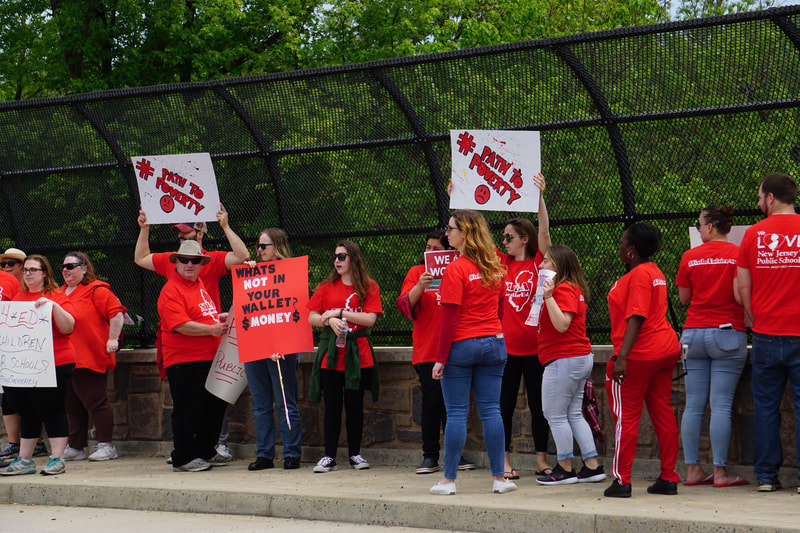If the Marlins Can’t Control COVID, How Can Schools? Murphy’s “Clarification” Explained
July 27, 2020
For New NJ Teacher Union Group, Politics Trumps Safe School Reopenings
July 29, 2020Marigna: Braven’s Career Booster Boot Camp Is Teaching College Grads How To Land Strong Jobs
Vincent Marigna is Executive Director of Braven, a career and leadership development accelerator focused on supporting first-generation, low-income college students with securing a strong first job out of college. He is the father of a 3-year old and lives with his partner in West Orange, New Jersey.
We often tell students, whether in the first grade or twelfth, that education is the path to a brighter future. We promise them that a college degree will open up opportunities for them — help them create the lives they’ve imagined for themselves.
Unfortunately, this has not been the reality for all students. As a former New Jersey public school teacher and school district administrator, I’ve seen this play out far too many times, especially for first-generation and low-income students. I’ve watched many bright college graduates return home from college and struggle to find a job, despite doing everything right: getting into and through college, maintaining a strong GPA, and obtaining their diploma.
It’s not that this group of young people lacked the talent or motivation to seek jobs. In fact, they have proved time and time again that they were capable of overcoming challenges and even applied to more jobs than their peers.
This group of students simply did not know what they did not know: the importance of networks and experiences to land strong jobs after college. This was information their more affluent peers had, with family members sharing job tips, connecting them with their contacts, and preparing them before their interviews in their living rooms.
And, they’re not alone. In pre-COVID times, only 25% of our country’s 1.2 million first-generation or low-income college enrollees landed a strong job after graduation and were on a path to economic mobility. Plus, an African American with a BA was twice as likely to be unemployed as their white counterpart, and a Bachelor’s degree holder from a low-income background started their career earning only two-thirds as much as those from higher-income backgrounds, which has led to wealth inequities in our country. In New Jersey, right here in our own backyard, it would take a Black family 228 years and a Latino family 84 years to achieve the wealth that an average white family has. And with the COVID-19 crisis upon us, now more than ever, college students from humble beginnings need to be prepared to compete for strong jobs.
To help support this group of students who’ve graduated into this challenging economy, Braven, the organization I work for and lead in the Newark area has launched a new offering: the Braven Career Booster. It’s a short, two-week online and virtual bootcamp that equips graduating seniors and recent alumni with a strong portfolio of artifacts including a resume and LinkedIn profile, soft skills like virtual networking and interviewing, understanding of the job application process in a recessed economy and contingency planning, access to an hour-long session with a professional, and a network of professionals and peers.
Thanks to our partnerships with universities, colleges, and college access and success organizations, just over 42,000 graduating seniors and recent alums already have access to the program nationwide. In Newark, we are partnering with Rutgers University-Newark, KIPP NJ and others.
Whether through a program like the Career Booster or taking individual actions, there is more we can all do for our first-generation, low-income students and alums. I encourage us all to consider these actions in the workplace and in our daily lives:
- Play a role in mentoring young students to provide advice and help them land a job.
- Commit to LinkedIn’s Plus One Pledge, where every time you refer someone in your network for a job, you also commit to referring someone outside of your network.
- Help students understand the importance of networks while they’re in college and even before then. Let them know that it’s never too early to start, since 70% of professionals get hired at companies where they already have a connection.
- Help these young people realize the challenges they’ve overcome in their lives can translate to the workplace, and help them tell that story.
- Continue to offer virtual internships, so that students are able to build up their experience.
We know that this group of students is incredibly talented and resilient. Let’s all do our part to help create opportunities for them, so that they realize their full potential.




